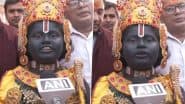New Delhi, Oct 29 (PTI) On World Stroke Day on Tuesday, experts underscored the critical role of rehabilitation centres in the recovery of stroke survivors and said they provide structured environments and advanced therapies often lacking in home care.
According to a report by the National Center for Biotechnology Information (NCBI), stroke is the third leading cause of death and the sixth leading cause of disability in India.
Public health initiatives focused on reducing risk factors like high blood pressure, diabetes, obesity, tobacco use and air pollution are essential to decreasing stroke occurrences, according to the NCBI.
Dr Sudheer Tyagi, Head of Department, Neurology, Indraprastha Apollo Hospital, Delhi said, "Structured rehabilitation environments play a crucial role in the effective recovery of stroke survivors. These centers provide a comprehensive approach that includes not only physical therapy but also essential emotional and psychological support, which are critical components of a full recovery."
Also Read | Amroha Shocker: Man Allegedly Given Acid Instead of Water in Jail by UP Police, Condition Critical.
In a rehab centre, patients benefit from a multidisciplinary team of professionals who guide them through each stage of recovery with specialised equipment and techniques, he said.
"This holistic approach is often lacking in home settings, where the absence of specialised equipment and professional guidance can significantly impede progress and extend recovery times," he added.
A survey by Health Care At Home (HCAH) in September revealed that 73 per cent of the 265 respondents included in the exercise believed recovery at specialised rehabilitation centres was more effective than at home.
Research by Johns Hopkins Medicine, USA indicates that 9 out of 10 stroke survivors experience paralysis, often considered permanent. However, starting rehabilitation within the first 90 days, known as the "Golden Period," is crucial.
During this time, the brain's neuroplasticity is at its peak, making it an optimal period for skill recovery and adaptation.
This underscores the importance of timely and well-structured rehabilitation efforts.
HCAH survey findings show that only 40 per cent of the respondents could identify key stroke symptoms before hospitalisation and that 92 per cent of the patients in inpatient rehabilitation recovered within three months.
Dr Praveen Gupta, Principal Director and Chief of Neurology, Fortis Hospital, Gurugram, said creating personalised care plans in agreement with patients and their families ensures that each stroke survivor receives treatment tailored to their specific needs.
"A comprehensive approach should include cognitive therapy, sensory rehabilitation, recreational therapy and more. These therapies are crucial not only for physical recovery but also for supporting emotional well-being, helping individuals return to normal life and preventing secondary strokes.
"The ability to develop personalised recovery plans tailored to each individual's needs, combined with access to advanced therapies, greatly enhances both the speed and quality of recovery," he said.
(This is an unedited and auto-generated story from Syndicated News feed, LatestLY Staff may not have modified or edited the content body)













 Quickly
Quickly
















